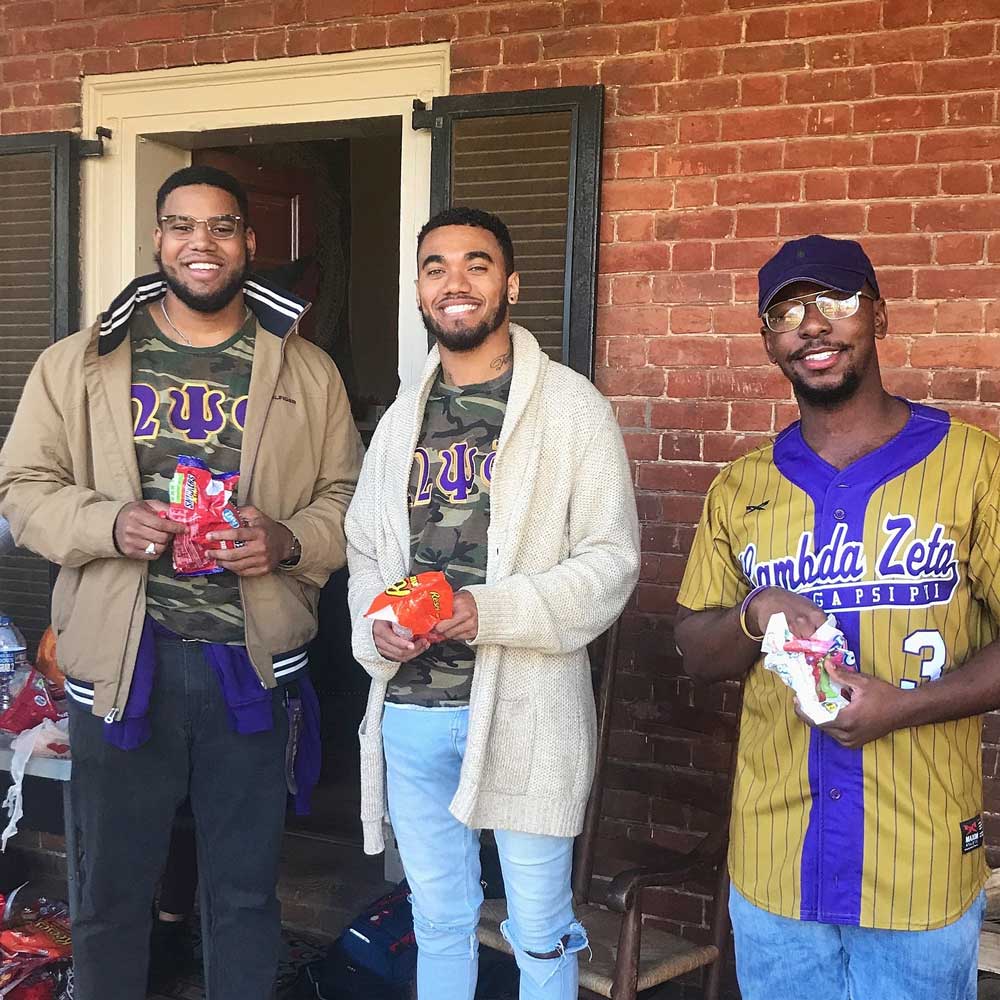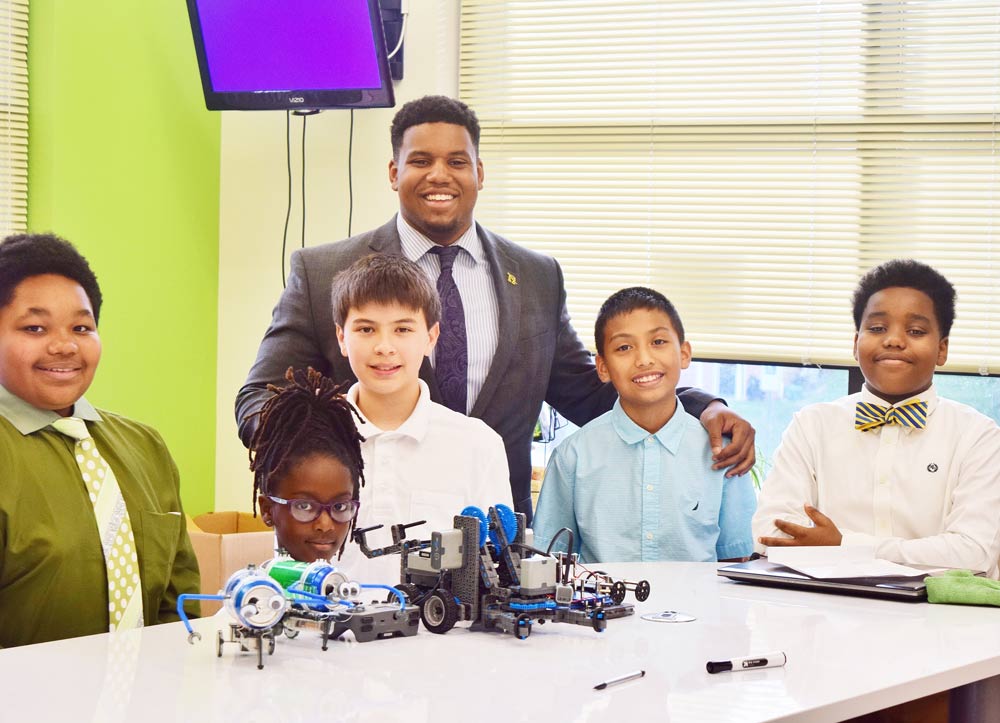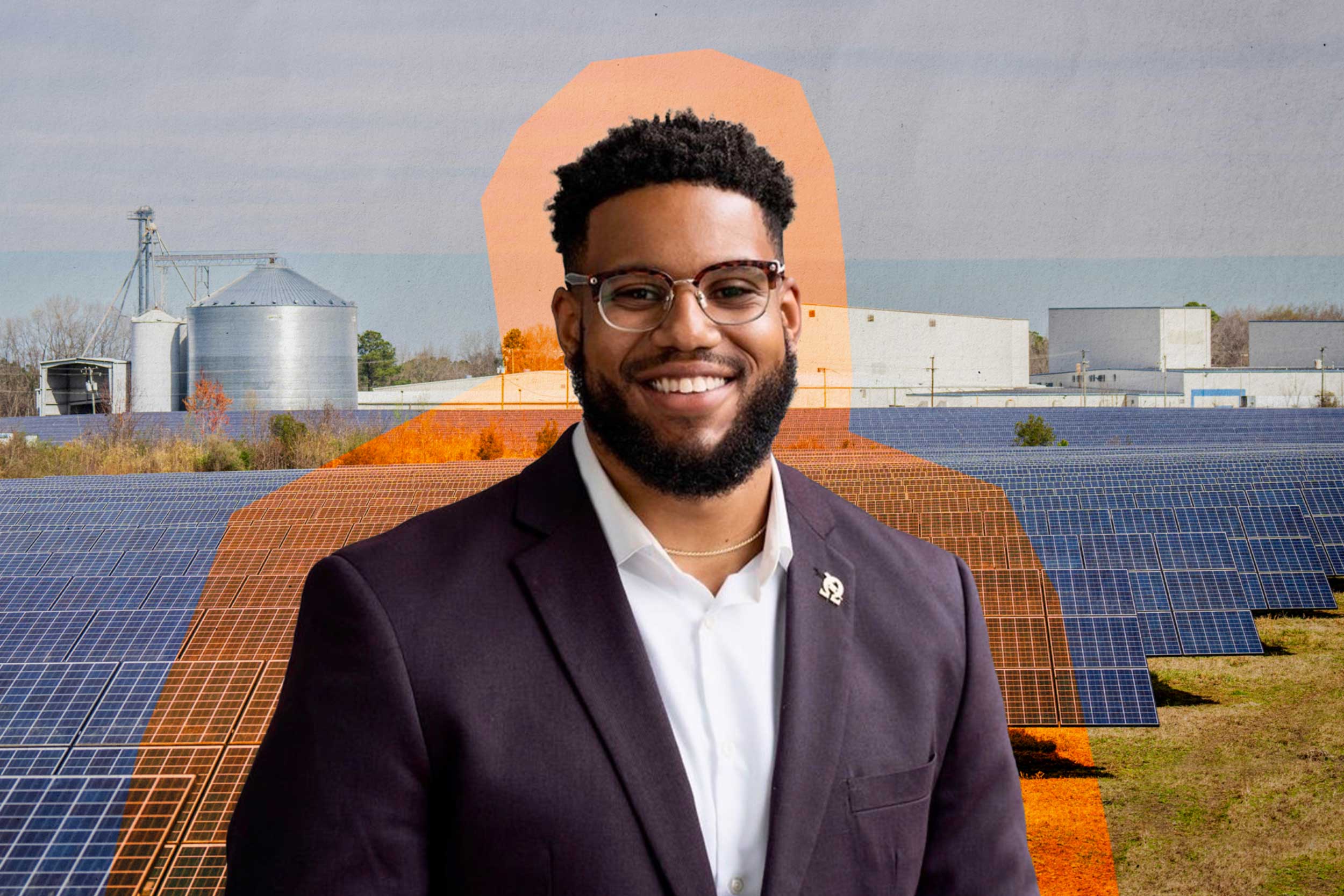As demand for renewable energy grows, solar power presents a challenge. Its widespread use often takes up valuable agricultural land, disrupting food production, local economies and the environment.
When Miles Braxton became interested in solar energy production at a young age, he noticed that University of Virginia engineering professor Mool Gupta’s LASER Research Group was one of the few labs in the country focused on photovoltaics, or solar cell manufacturing.
So, he pursued a degree in environmental sciences with a minor in engineering business at UVA, working in Gupta’s lab in his first year, and graduating in 2018. When he realized lab work wasn’t for him, he pivoted to the business and technology aspects of clean energy.
Now, he co-runs Okovate Sustainable Energy, a startup focused on building community solar sites on existing farmland in ways that allow for the land to continue to be used for agriculture.
He is also a co-founder of BlackOak Collective, a nonprofit with more than 450 members dedicated to supporting Black professionals in environmental sectors.
It’s a coincidence that both of his creations, BlackOak and Okovate have similar names. The black oak is another name for scarlet oak, the national tree of Washington, D.C.
Those accomplishments earned him and his cofounder, Savannah Whitfield, spots on Forbes magazine’s 2025 “30 Under 30” list.

Braxton is a 2018 UVA graduate. He earned a degree in environmental sciences. (Contributed photo)
“We have a problem in the solar industry right now, where over 83% of solar farms are going on active farmland – and that’s removing farmland production, causing us to import more food,” Braxton said. “It’s kind of killing agricultural local economies.”
Part of his commitment to community comes from the historically African American collegiate fraternity Omega Psi Phi that he said helped raise him.

Braxton with James Banks and Marcus Cross at the 2016 Trick-or-Treating on the Lawn. (Contributed photo)
“All the men in my life were Omega men, including my dad and three grandfathers,” he said. “So were the men who I saw at the cookout and the family friends who picked me up from school during emergencies. I could identify my dad’s friends by the colors they were wearing.”
He said he enjoyed seeing the quality of the men’s commitment to supporting one another and the long legacy the brotherhood held, extending to people like Carter G Woodson, a 19th-century historian recognized as the father of Black history in the United States.
He pledged the fraternity while at UVA and became heavily involved in its leadership. This practice of community care on campus extended to his involvement with One in Four, a male-run sexual assault prevention and peer education group.
Braxton lived his early life in Maryland’s Prince George’s County, before moving and completing middle and high school in Richmond. He now lives in Oxon Hill, Maryland.
His first job after graduating from UVA was with a company tasked with converting chicken manure into electricity. “So 75% of my time doing stoichiometry, looking at energy mass balances as an analyst, and figuring out how many grams of poop we needed to net certain grams of methane,” Braxton recalled. “For the other quarter, I was in and out of chicken coops, monitoring poop, which was not the lifestyle that I saw for myself.”

Braxton, with UVA’s National Association of Black Engineers chapter, teaches robotics class after school to Burley Middle School students. Service has long been a major part of his life. (Contributed photo)
His next gig at Sol Systems, a solar energy company in Washington, D.C., inspired him to learn more about financing and deploying clean energy. He completed a yearlong joint certificate from the Yale School of Environment and Yale School of Management
“From there, I got interested in the concept of agrivoltaics, the co-location of solar energy and agriculture on the same land,” he said. “Now, a lot of small communities are leading efforts against solar development because it’ll ruin their farming economies.”
With the increase of large data centers in places like Loudoun County and an exponentially growing population, he said there is a need for both exponential amounts of energy and sustainable food. When he noticed some European developers were banning solar on farmland unless the power plants were designed around farming operations, he was interested in learning how to apply this concept closer to home; for example, by placing panels so crops grow in between and under them, farmers can both reduce their water use and make crops more heat-resistant.










